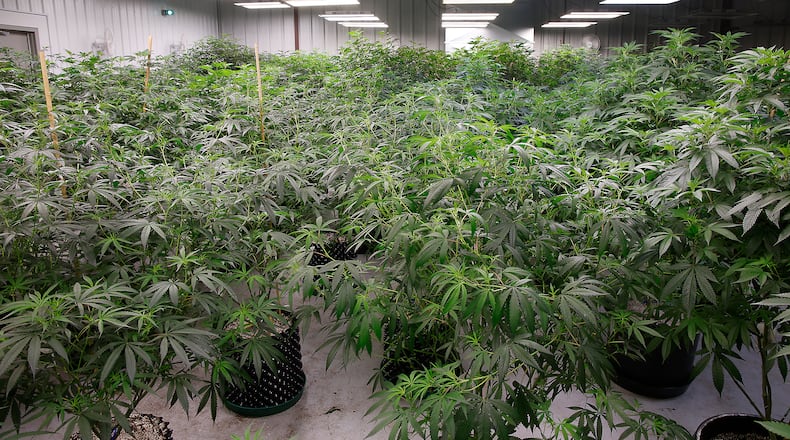A Senate committee added changes to the newly approved marijuana law as part of consideration of a liquor control bill. The new measure could be voted on by the full Senate this week. Any changes would need to be approved by the House before going before the governor for his signature.
The marijuana law passed by voters goes into effect Thursday.
The proposed changes were outlined by Ohio Sen. Rob McColley, R-Napoleon, at the senate’s general government committee hearing Monday.
Those changes include:
- A ban on growing marijuana at home. Voters had approved cultivation of six marijuana plants at a time, with a limit of 12 per household.
- Increasing the taxes and directing all of it to the state’s general fund, law enforcement training, marijuana substance abuse treatment and prevention, and safe driver training.
- Eliminating voter approved money for jurisdictions with marijuana businesses and assistance to disadvantaged and minority marijuana business owners.
- Decreasing the potency of legal marijuana and limiting the amount people can possess to one ounce of plant material and 5 grams of extracts.
- Banning smoking marijuana in public and vehicles, limiting it to private residences and allowing landlords to ban it.
- Allowing employers to have drug free workplace policies and discharge people for violating it by using marijuana.
- Limit the total number of dispensaries to 230, down from the 350 McColley said the voter-approved law allows.
“These changes begin to make Issue 2 less dangerous to Ohioans and less self-serving to the industry. They’re unlikely to be the last,” said Scott Milburn, spokesperson for the campaign against Issue 2.
The proposal would “gut Issue 2′s most important provisions, including home grow and social equity, and (would propose) to put in place higher taxes that will entrench the illicit market and force Ohioans to continue to buy their cannabis products in Michigan,” said Tom Haren, spokesman for the Coalition to Regulate Marijuana Like Alcohol, which supported Issue 2. “This is not what voters wanted.”
The bill would increase the marijuana excise tax from 10% to 15%, which would generate $262 million annually, and add a 15% tax on cultivators, which would bring in $149.7 million annually.
The state sales tax would also apply to marijuana sales and bring in $100.4 million in annual revenue, McColley said.
The state’s general revenue fund would get 45% of the estimated $512 million generated annually from those taxes. Thirty percent would go to the law enforcement training fund, 15% to a marijuana substance abuse treatment and prevention fund and 10% to a safe driver training fund.
“From my mind the voters intent is nowhere to be found in this what I call a shell of what the voters passed,” said Sen. William P. Demora, D-Columbus, the five-member committee’s only Democrat and only no vote on the proposal.
He said he supports reducing the number of plants a person can grow but getting rid of home grow goes against what voters want. He also said the taxes are too high and should go to where voters chose.
Follow @LynnHulseyDDN on Facebook, Instagram and X.
-
About the Author

